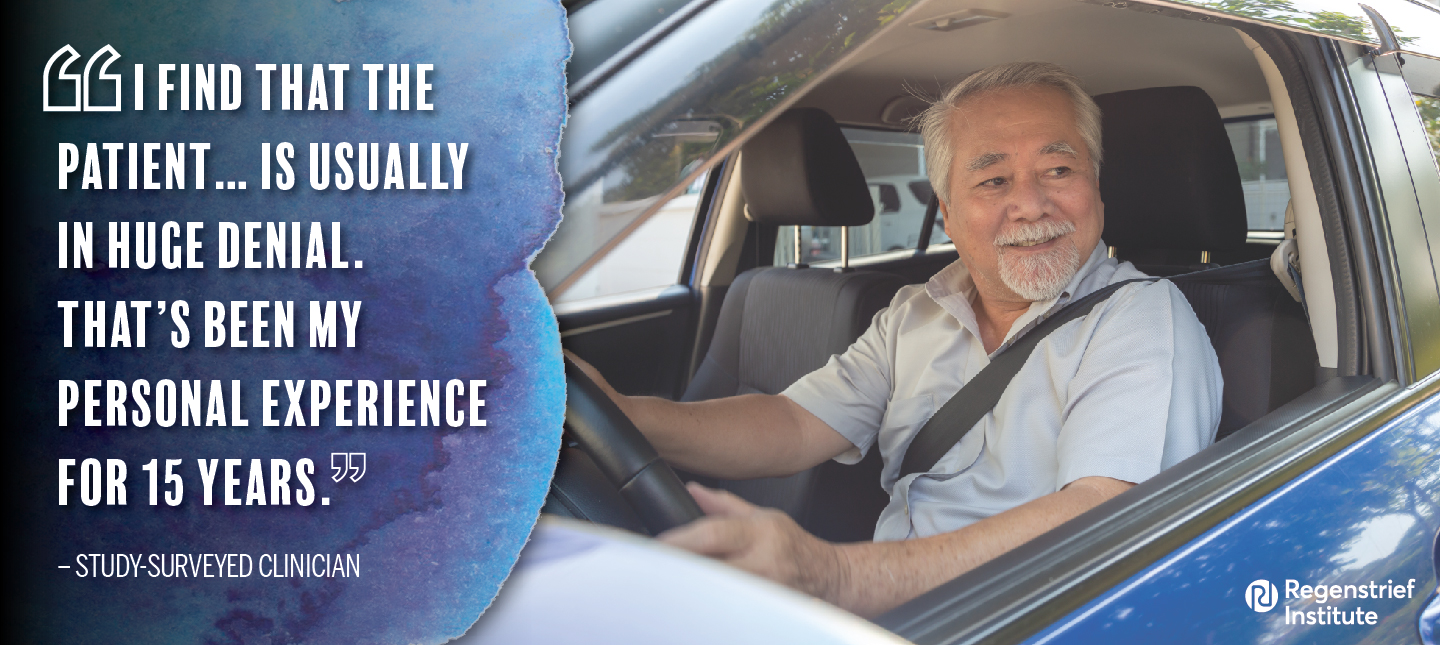INDIANAPOLIS — Cars are ubiquitous in the U.S. and mass transit service has declined. With the exception of a few cities like New York and Chicago, visiting cultural attractions, attending social events, transporting grandchildren, shopping for groceries or a long list of other activities and tasks often require traveling in a car. Driving is critical to independence and mobility of older adults, making the decision as to when they should stop driving a difficult topic for physicians to discuss with their older patients.
A study highlights the issues healthcare providers face regarding discussions of driving retirement including assessing driving capabilities and counseling. The research team interviewed clinicians as well as subject matter experts about numerous aspects of the issue including balancing the older adult’s concerns and needs with public safety consequences as the healthcare provider supports aging individuals at this critical stage of life.
“Despite the emotionally loaded nature of the issue of driving cessation, our research indicates that it’s okay to start to talk about aspects that may involve the quality of life and the larger scope of safety with your patient,” said Regenstrief Institute and Indiana University School of Medicine researcher Nicole Fowler, PhD, co-author of the study. “Driving and other safety issues such as gun ownership are topics that primary care providers often say come up in the context of discussions with older adults and their families.
“Although it doesn’t necessarily feel like a medical decision, it hugely impacts their quality of life. Similar to a conversation with a patient — and possibly their family — about advanced care planning, having discussions about safety early — in particular driving — serves the patient and their family in a way that I think they really value.”
Themes that emerged included from interviews with the clinicians (physicians, physicians assistants, nurse practitioners and social workers) and subject matter experts:
- The importance of early planning for driving cessation.
- Concerns over ageism and damaging provider–patient relationships.
- Clinician concern about insufficient information regarding social factors related to an older adult’s perceived need to continue driving.
- Need for consolidated, easy-to-access resources for both providers and patients.
- Benefits of integrating tools, including decision support aids for older adults, into electronic health records.
- Greater likelihood that a printed rather than an online decision support tool might be more acceptable to older adults.
Comments from study participants on older driver retirement included:
- “…we get that question a lot. I find that the patient…is usually in huge denial. That’s been my personal experience for 15 years.”
- “I think the most effective delivery of that would probably be coming from the doctor. If they’re going to an annual visit, the doctor hands it [decision support aid] to them and even talks them through it if they have time because that’s a person of authority speaking to them about the issue versus just a stack of papers at the rec center, they might not pay attention to that.”
- “…even five minutes [is] almost a quarter of the time that we have with our patients. But something that may be is done at home or done in advance, incorporated into (for instance) Medicare wellness visits, as a questionnaire that we’re often sending out to patients in advance.”
The study evaluated an online decision tool completed by older drivers and used by clinicians to learn more about the older adult’s perspective on driving cessation. In a prior study, the team found that the decision aid significantly decreased decision conflict and improved knowledge among older adults considering driving cessation.
“In the current study, we spoke directly with healthcare providers and other experts to understand their perspectives on how these conversations happen in their daily practice,” said lead author Emmy Betz, M.D., MPH, professor of emergency medicine at the University of Colorado Anschutz medical Campus.
The research provides insights into potential implementation of the decision aid in clinical or community settings, including individual, interpersonal, institutional and cultural factors that may affect use and impact.
“ ‘You just have to be careful how you do it’: A qualitative study of the Healthwise decision aid for older drivers” is published in the peer reviewed journal Traffic Injury Prevention. This work was supported by National Institutes of Health’s National Institute on Aging grant AG059613 to the University of Colorado Anschutz Medical Campus (Marian E. Betz, principal investigator).
Authors and affiliations:
Marian E. Betz1,2, Nicole R. Fowler3,4, Kayla Meza1, Alex Bletz1, Faris Omeragic1, Daniel D. Matlock2,5.
-
- 1Department of Emergency Medicine, University of Colorado, School of Medicine, Aurora, Colorado.
- 2Eastern Colorado Geriatric Research Education and Clinical Center, Rocky Mountain Regional VA Medical Center, Aurora, Colorado.
- 3Department of Medicine, Indiana University School of Medicine, Indianapolis, Indiana.
- 4Indiana University Center for Aging Research, Indianapolis, Indiana.
- 5Division of Geriatric Medicine, Department of Medicine, University of Colorado, School of Medicine, Aurora, Colorado.
Nicole R. Fowler, PhD, MHSA
In addition to her role as associate director and research scientist with the Indiana University Center for Aging Research at Regenstrief Institute, Nicole R. Fowler, PhD, MHSA, is also an associate professor of medicine, the director of research for the Division of General Internal Medicine and Geriatrics, and an implementation scientist in the Center for Health Innovation and Implementation Science at the Indiana University School of Medicine.











